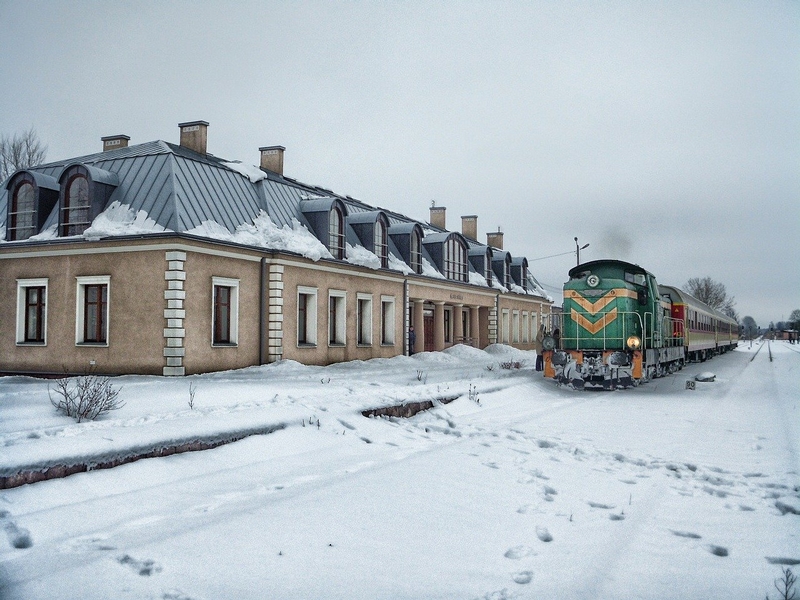
Welcome to WARS
There is a growing clamour for railway journeys these days, rather than taking flights, more and more people are choosing to travel by rail in their down time, especially overnight. In Vienna there is now a movement towards taking a sleeper wagon to any part of Europe or even beyond. High speed train services have reduced travelling times considerably. It takes 10 and a half hours from Paris to Rome with no hotel fee either. Flight-Shame has led to more people travelling by rail, especially in Nordic countries, and longer distance sleeper routes are now opening up between European cities and beyond.
It was a very different experience living and travelling in Poland in the 80s and 90s. Old Polish pospieszny (fast) and ekspres (express) trains were Communist era, mostly shabby, drab compartment carriages of 1st and 2nd class, the only main difference being the antimaccassers in 1st class and 2 fewer seats. WARS was the sleeper and buffet service, blue for the sleeper, red for the buffet. The dull interior suitably designed by committee and possibly carved out of old T34s (mass-produced Soviet tanks from WW2). The slogan: Wars Wita Was (Welcome to Wars).
Other passengers sharing a sleeper or couchette and having brought their own packages of food from home, would proceed to tuck in to kiełbasa czosnkowa (garlic sausage), ogórki kwaszony (dill cucumbers) jaja na twardo (hard-boiled eggs) and śledź (pickled herring). Only a fool bought food and drink on the train, the mark-up was horrendus. That said, I declined the kind offer of a hard-boiled egg and pig’s knuckle and made my way to the WARS wagon.
The WARS buffet car, rzut beretem (a stone’s throw) from the ogórki chomping in the garlic-befugged compartment, was a chance to stretch the legs, change the scene and scrape your shins on the high stools, probably made out of AK47s. The slogan: “Welcome to Wars” made oblique reference not to the great hospitality to be found in armed conflict, but to one half of a couple, the other being Sawa, after whom Warsaw was apocryphally named. The plastic flowers on the buffet tables added to the gloomy atmosphere that accompanied the surly steward, his indignance that you actually wanted to buy something, perfectly setting off his mien of bored indifference.
Snacks were made out of what looked like cardboard, then there was the watered-down flaki (tripe) with no guts; Kotlet Schabowy a ‘scabrous’ cutlet; Jajecznica (scrambled eggs); and if you were really lucky, makaron z truskawkami i serem (strawberries in pasta with curd cheese). There were some cold, luminescent drinks, but no beer.
Herbata (tea) was served in a thin glass with no handles, the glass burning your fingers, if you tried to pick it up. Accomplished Polonophiles would develop asbestos fingers and the knack of holding the glass jauntily from the very top, between the thumb and middle finger.
The pièce de résistance of the WARS café was the Kawa po turecku (Turkish coffee), which was sold by the slice. The grounds (fusy) floated as a thick slurry on the surface, so dense that a sugar cube took 15 minutes to sink beneath the slick. The ‘fusy’ made a chewy treat after every strained swig. After such a caffeine hit my head started spinning so I went in search of fresh air.
As I cooled my head out of the window in the summer breeze, wondering what ‘не высовывайся’ meant, the coffee started to have its desired effect on my digestive system. I embarked on a trip to the the WC, a sight hideous to behold. By way of diversion, I inspected the elaborate schemat of the WC water system on the wall, an obligatory and riveting description of the workings of the toilet plumbing in the cubicle, the train couldn’t run without it.
All the basic safety features had long since been removed from vestibules and corridors. The fire extinguisher had long since been snuffed out, the emergency brake broken, and the ‘Nothammer’ as good as its name in German.
WARS was a true traveller’s way of filling in the gap from A to B, an insight into the world we inhabit on our way. The smell of cheap tobacco and dill, demonic women, waspish drunks, petty arguments and squabbles with scheming, jaded waiters, and bribes to the guard for a seat, where vodka was the only hard currency.
Return to blog